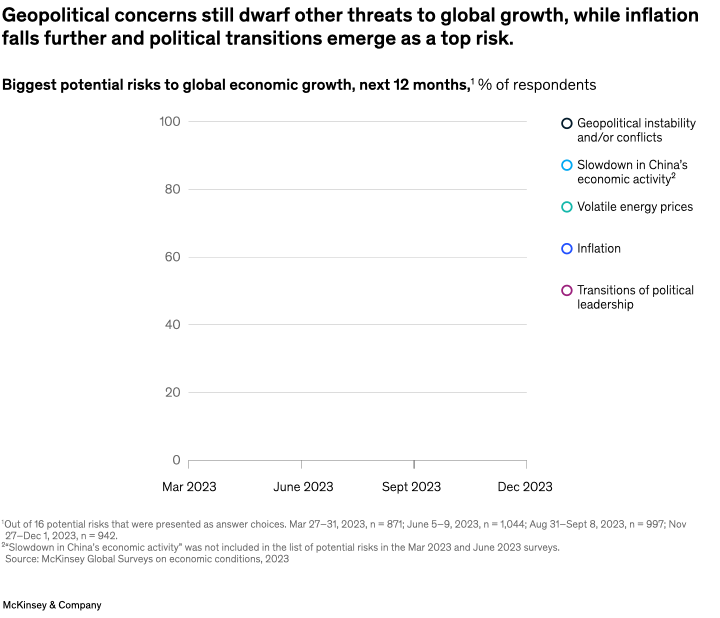Davos—the World Economic Forum’s annual meeting—is in full swing through January 19. All this week, our daily charts will focus on some of the key themes of the event, including resilience, sustainability, reimagining globalization, generative AI, and inclusive, equitable growth. For more, see “McKinsey and the World Economic Forum 2024.”
Geopolitical instability has risen as a potential threat to global growth for 2024, cited by 67 percent of executives in a recent McKinsey Global Survey. Concerns about transitions of political leadership also rose, senior partner Sven Smit and colleagues find. Fears about inflation, meanwhile, have continued to recede, dropping from more than 30 percent in March 2023 to less than 20 percent at the end of the year.

Image description:
A line graph displays what survey respondents indicated as the biggest potential risk to global economic growth in the next 12 months. Respondents were surveyed in Mar 2023, June 2023, Sept 2023, and Dec 2023. The biggest risk that respondents indicate above all others, in all surveys, is geopolitical instability and conflict, which in Dec 2023 was more than double any other concern, at ~67% of those polled.
Footnote 1: Responses were out of 16 potential risks that were presented as answer choices. Mar 27–31, 2023, n = 871; June 5–9, 2023, n = 1,044; Aug 31–Sept 8, 2023, n = 997; Nov 27–Dec 1, 2023, n = 942.
Footnote 2: “Slowdown in China’s economic activity” was not included in the list of potential risks in the Mar 2023 and June 2023 surveys.
Source: McKinsey Global Surveys on economic conditions, 2023.
End of image description.
To read the survey, see “Economic conditions during turbulent times, December 2023,” December 20, 2023.